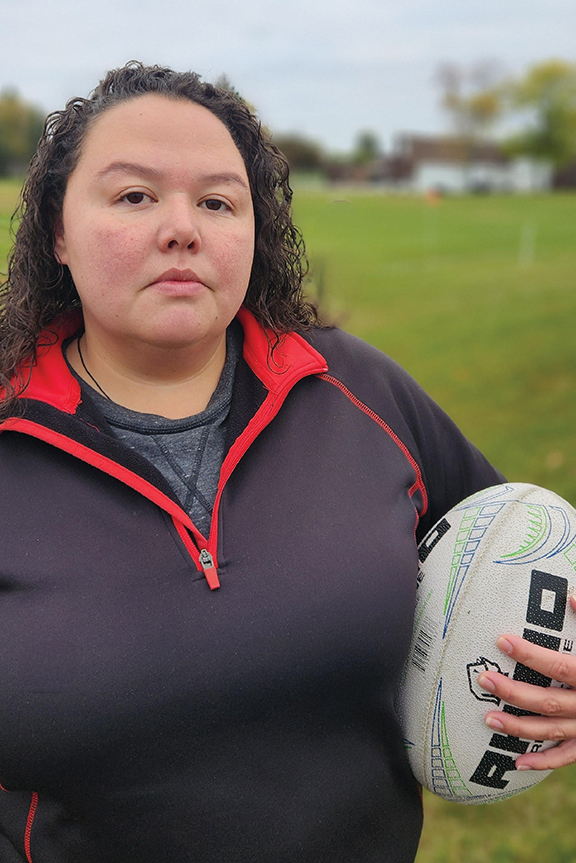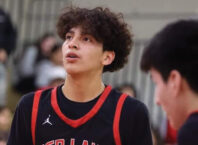By Dan Ninham
Athena Aitken (Leech Lake Ojibwe and Hocak) has been the coach for Minnesota State University-Moorhead (MSUM) Women’s Rugby Club since 2012. The team has been competing in the Small College division for schools with female enrollment under 3500.
Athena Aitken will be inducted into the coach category in the 2024 class of the North American Indigenous Athletics Hall of Fame.
The team made the regional playoffs ten seasons, with four of those continuing to national competition appearances including being National Champions in 2015.
Aitken has come full circle as an alum of MSUM with an Anthropology degree in 2012, being a player on the women’s rugby team and eventually being the head coach of the program.
“In 2021 I was selected to be the coach of the Minnesota All-Star team competing in the Collegiate Rugby Championship in New Orleans, Louisiana,” said Aitken.
“I believe everything has its place and there is a place for everything,” said Aitken. “As in nature, nothing is useless and nothing is above anything else; everything has its part to play to make the system work.”
“In a team sport like rugby, the team must come first. Players may be different in athletic ability and innate decision-making, but when everyone is learning a brand new sport, there can be no one player that is placed above the team as a whole. Everyone must respect each other’s role on the team and the part it plays to make the team successful,” she added.
Women’s rugby is one of 17 club sports at MSUM. According to the website, club sports are open to undergraduate and graduate students. Funding comes from student activities fees that are included in tuition fees but fundraising is only one of the challenges of the team.
“One of the challenges of being the coach of a collegiate club is the nature of the position itself; very few universities offer rugby as a varsity sport,” said Aitken. “In light of this, I am technically a volunteer coach and do not receive any compensation. Club budgets can vary from year to year and from different student-led administrators.”
“Securing funding to cover registration costs and travel expenses is always the top priority. Competitor teams come and go and the schedule changes every season, leading to uncertainty about projected travel expenses. Nearly all of my players past and present held employment as well as a full time class schedule while dedicating their valuable spare time to learning a sport they had not heard of until they reached college,” she added.
“I want every dollar to stay within the club so everyone who wants to play can play without worrying about the costs associated with the season,” said Aitken.
Elite coaches and athletes have mentors that guide them on their path in and out of the athletic arena. Oftentimes family members serve the mentor title. Her father, Larry Aitken, established Leech Lake Tribal College and was a professor in Ojibwe Studies in a number of higher education institutions for three decades. Larry Aitken was an inspiring and aspiring leader among many others as well as with his family.
“My first and biggest inspiration has always been my father, Larry,” said Aitken. “He taught me that being a successful multi-sport athlete is possible and something to strive towards. He was my number one fan and showed me how to perform under pressure, to approach each new challenge with a clear mind and a singular focus. He also showed me how to have confidence in my actions and inspire confidence in my teammates.”
“During practices I am so grateful to have people who know the drills, have the skills, and can showcase the technical aspects of positions they’ve played,” said Aitken. “On game day they take care of the little things when I am focused on preparing the team for the 80 minutes ahead. They help foster the positive team culture in so many ways: lending an ear to a shy player, motivating the team during a conditioning session, and sometimes acting as a translator between coach and player.”
“Being recent graduates they eventually depart, but the team is improved and their strategies live on in the freshman class,” she said.







